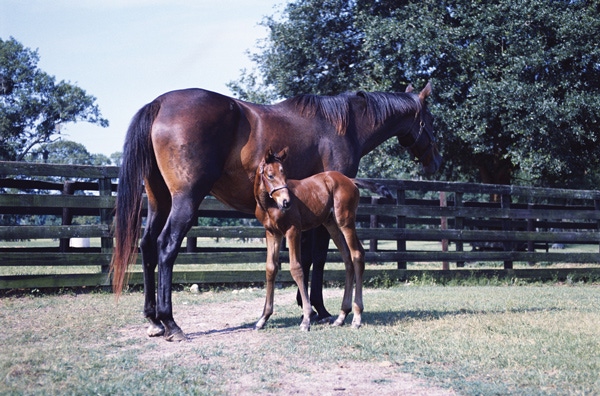
The Texas Animal Health Commission (TAHC) is reporting the first cases of Vesicular stomatitis (VS) in the U.S. this year have surfaced in Southwest Texas.
TAHC says the U.S. Department of Agriculture Animal and Plant Health Inspection Service (USDA-APHIS) confirmed five horses in Kinney County, southeast of Del Rio, are infected with a New Jersey serotype of VS.
The horses were tested after the owner observed blistering and swelling on the animals' muzzles and subsequently contacted their veterinary practitioner. Testing at the National Veterinary Services Laboratories (NVSL) confirmed the virus.
Vesicular stomatitis is a viral disease that primarily affects horses and cattle but also can affect sheep, goats, llamas, alpacas, swine, deer and some other species, including bobcats and raccoons. Humans can also become infected with the disease when handling affected animals, but this is a rare event.
To date, VS has only been confirmed in the Western Hemisphere. It is known to be an endemic disease in the warmer regions of North, Central, and South America, but outbreaks of the disease in other temperate geographic parts of the hemisphere occur sporadically.
For the latest on southwest agriculture, please check out Southwest Farm Press Daily and receive the latest news right to your inbox.
"If you suspect your animal may have VS, you should notify your veterinarian immediately," said Dr. Andy Schwartz, Assistant Executive Director and State Epidemiologist at TAHC. "VS is not highly contagious to people but it can cause flu-like illness if infected saliva gets into an open wound, eyes or mouth. People handling potentially infected animals should wear gloves for protection, and talk with their physician if they have questions."
In the past decade, the Southwestern and Western United States have experienced a number of VS outbreaks. Outbreaks usually occur during the warmer months, often along waterways. In some years only a few farms or ranches in a single state have been affected. However, in other years, multiple states and many premises have been involved.
VS can cause blisters and sores in the mouth and on the tongue, muzzle, teats or hooves of horses, cattle, swine, sheep, goats, and other animals. Lesions usually will heal in two or three weeks. Because of the contagious nature of VS and its resemblance to other diseases such as foot and mouth disease (FMD), animal health officials urge livestock owners and caretakers to report these symptoms to their veterinarian immediately. Most animals recover well with supportive care by a veterinarian, but some lesions can be painful.
The newly identified infected group of horses is currently under quarantine by the TAHC. Affected and exposed horses will be monitored by regulatory veterinarians until all lesions have healed and a decision is made to release the quarantine (a minimum of 21 days). TAHC officials do not suspect exposure to other horses around the state, or at any equine events. No other cases of VS have been identified in the immediate area or elsewhere in the state.
"Livestock owners should use the best means possible to limit exposure of their livestock to insect bites," reports Dr. Dee Ellis, Texas State Veterinarian and Executive Director of the Texas Animal Health Commission.
Ellis says insects may be an important vector in the transmission of VS. Sand flies and black flies likely play a role in the virus transmission, so controlling insects is important.
"VS outbreaks are extremely sporadic and years may lapse between cases. The last confirmed case of VS in Texas was in 2009," Ellis added.
TAHC officials say some states and other countries may restrict movement of or impose additional requirements for susceptible animals from states having known cases of VS; therefore, it is wise to contact the state or country of origin for requirements prior to moving livestock.
Although VS rarely results in death, infected animals lose condition because they do not eat or drink when the blisters and ulcers are present. When an animal is badly infected, an owner may opt to have an animal euthanized to end its suffering.
Researchers have determined that outbreaks initially are started by a virus transmitted by arthropods, black flies and sand flies. They have not, however, been able to determine why infection occurs sporadically, and where the virus resides during the years when VS is not present.
About the Author(s)
You May Also Like




